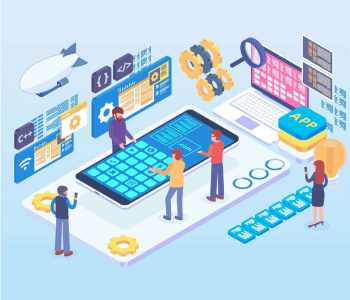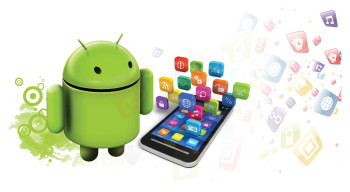Revolutionizing User Experience: Navigating the Evolving Mobility Landscape in Mobile App Development
The mobile app development landscape is a dynamic and ever-evolving ecosystem. As technology advances and user expectations grow, it's crucial for developers and businesses to adapt and revolutionize the user experience. In this blog, we'll explore the changing mobility landscape and how it impacts mobile app development, ultimately paving the way for a more immersive and user-centric experience.
The Pervasiveness of Mobile Devices
Mobile devices, such as smartphones and tablets, have become an integral part of our daily lives. They have redefined the way we access information, communicate, shop, and entertain ourselves. As a result, the demand for mobile apps has skyrocketed. To meet this growing demand, developers must be keenly aware of the hardware and software capabilities of different devices. Creating apps that seamlessly function on various screen sizes, resolutions, and operating systems is essential for a positive user experience.
Responsive Design and Cross-Platform Development
Responsive design is the key to ensuring an exceptional user experience across a multitude of devices. It involves creating apps that adapt to different screen sizes and orientations, offering a consistent and user-friendly interface. Furthermore, cross-platform development frameworks like React Native and Flutter have gained prominence. These frameworks enable developers to write a single codebase that can be deployed on multiple platforms, saving time and resources while ensuring a consistent user experience.
The Importance of Speed and Performance
In a world where instant gratification is the norm, users expect mobile apps to load quickly and respond to their commands without delays. Slow and unresponsive apps are often uninstalled, leading to loss of customers and revenue. To revolutionize user experience, developers must prioritize app performance through efficient coding, optimized graphics, and minimal network requests. Utilizing progressive web apps (PWAs) that offer fast load times and offline capabilities is also an emerging trend.
User-Centric Design
User experience (UX) design is at the heart of mobile app development. To revolutionize the user experience, apps must be designed with the end-users in mind. This involves conducting user research, creating user personas, and conducting usability testing. By understanding user behaviors and preferences, developers can design apps that are intuitive and easy to navigate, ultimately leading to higher user satisfaction.
Personalization and AI Integration
Personalization is a key driver of a revolutionized user experience. Users expect apps to offer tailored content and experiences. Integrating artificial intelligence (AI) and machine learning (ML) into mobile apps allows for data-driven personalization. Apps can analyze user behavior, preferences, and interactions to provide personalized recommendations, content, and user interfaces, creating a highly engaging and immersive experience.
Augmented Reality (AR) and Virtual Reality (VR)
The incorporation of AR and VR technologies has the potential to revolutionize user experience in mobile apps. AR can enhance user interactions by overlaying digital information onto the real world, while VR can transport users to entirely virtual environments. Industries like gaming, education, and retail are already leveraging AR and VR to create immersive and interactive experiences that captivate users.
Voice User Interfaces (VUI)
Voice-activated assistants like Siri, Alexa, and Google Assistant have become integral parts of our lives. Integrating voice user interfaces into mobile apps can provide a more natural and convenient way for users to interact with their devices. This technology not only makes apps more accessible but also enhances user experience by reducing the need for manual input.
Security and Privacy
With the increasing number of data breaches and privacy concerns, users are more cautious about sharing their personal information. To revolutionize user experience, developers must prioritize security and privacy. Implementing strong encryption, data protection, and clear privacy policies builds trust with users, ensuring they feel safe while using the app.
Continuous Updates and Feedback Loops
The mobility landscape is in a constant state of flux. To keep up with evolving user expectations and technological advancements, developers must commit to continuous updates. Collecting user feedback through app reviews, surveys, and analytics is essential for identifying pain points and areas of improvement. Regular updates not only fix bugs and security issues but also introduce new features and improvements that enhance the user experience.
As the mobility landscape continues to evolve, mobile app development must adapt to meet the changing demands and expectations of users. Responsive design, cross-platform development, speed and performance, user-centric design, personalization, AR, VR, VUI, security, and continuous updates are all crucial components of revolutionizing the user experience. To succeed in this ever-changing environment, developers and businesses must remain agile and prioritize the user's needs, ensuring that mobile apps continue to provide value and delight to users in this exciting era of digital transformation.











